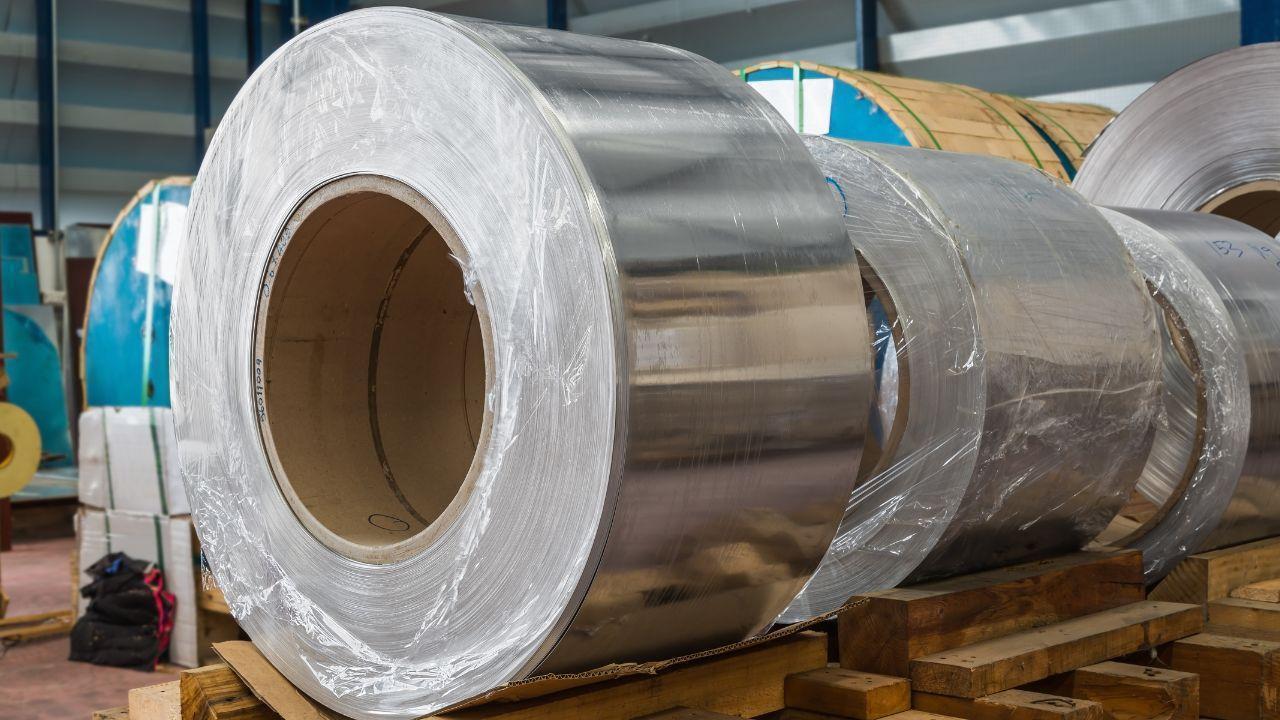
Post by : Meena Rani
A key industrial project in Andhra Pradesh, the aluminium alloy plant jointly undertaken by National Aluminium Company Limited (NALCO) and Mishra Dhatu Nigam Limited (MIDHANI), has hit an unexpected roadblock. This project was planned to strengthen India’s capacity to produce high-quality aluminium alloys and reduce dependence on imports. It was expected to be a major boost to the country’s manufacturing and industrial sectors. However, recent developments show that the project is struggling with serious financial and operational issues, raising concerns about whether it can continue as planned.
About the Project
The project is a collaborative initiative between two major Indian public sector companies. NALCO, India’s largest integrated aluminium company, and MIDHANI, a specialized manufacturer of metals and alloys for critical industries like defence, aerospace, and space research, joined hands to create this state-of-the-art facility. The primary aim was to produce advanced aluminium alloys to meet the requirements of strategic industries while also serving commercial sectors like automotive and construction.
The plant was strategically located in Andhra Pradesh due to its strong industrial base, availability of resources, and access to ports and markets. The project was also expected to create jobs, enhance skill development, and generate economic growth in the region. Local communities were hopeful that the project would provide long-term opportunities and improve infrastructure around the site.
Financial and Operational Challenges
Despite careful planning, the project has faced serious financial difficulties. Rising costs of raw materials, especially metals required for alloy production, have created pressure on the project’s budget. Unanticipated technical challenges during construction and production setup have further increased expenses. These issues have pushed the project well beyond its initial financial projections, making it difficult for the companies involved to sustain operations smoothly.
Moreover, market conditions have not been as favorable as expected. The demand for high-quality aluminium alloys, particularly in certain industrial sectors, has not grown as quickly as projected. This slower-than-expected demand has added to the financial strain, leaving the project vulnerable to losses.
Impact on Stakeholders
The financial challenges have affected a wide range of stakeholders. Employees working on the project are concerned about their job security due to delays and uncertainties in operations. Investors and government bodies that have provided funding and support are worried about returns on their investments. The local population, who had anticipated employment opportunities and economic benefits from the project, now faces uncertainty about whether these expectations will be fulfilled.
Role of the Government
The Indian government had earlier recognized the strategic importance of the aluminium sector and provided support through policy incentives, subsidies, and funding approvals. These measures were meant to encourage large-scale industrial projects like this one. However, the financial difficulties have prompted calls for a re-evaluation of the project’s feasibility. Experts have suggested that the government and the companies involved need to conduct a detailed review of the project’s financial model, cost structure, and market potential. This review could help decide whether to continue, restructure, or repurpose the project for other industrial purposes.
The future of the Nalco-MIDHANI aluminium alloy project remains uncertain. While the project’s objectives of strengthening India’s industrial capabilities and producing strategic alloys are important, the current financial and operational challenges cannot be ignored. Collaboration among the companies, government authorities, and industry experts is crucial to finding a solution.
Possible steps could include revising the production plan, seeking additional funding, exploring new markets for aluminium alloys, or adjusting project timelines to manage costs better. The project also provides lessons for other industrial initiatives, highlighting the need for detailed financial planning, risk assessment, and realistic market forecasting before execution.
The aluminium alloy project in Andhra Pradesh is at a crossroads. Its vision remains valuable for India’s industrial and strategic growth, but urgent measures are required to address its financial hurdles. With careful planning, government support, and industry collaboration, it may still achieve its goals, but the road ahead will require patience, resources, and effective decision-making.
Aluminium alloy project, NALCO, MIDHANI, Andhra Pradesh, financial hurdles










Advances in Aerospace Technology and Commercial Aviation Recovery
Insights into breakthrough aerospace technologies and commercial aviation’s recovery amid 2025 chall

Defense Modernization and Strategic Spending Trends
Explore key trends in global defense modernization and strategic military spending shaping 2025 secu

Tens of Thousands Protest in Serbia on Anniversary of Deadly Roof Collapse
Tens of thousands in Novi Sad mark a year since a deadly station roof collapse that killed 16, prote

Canada PM Carney Apologizes to Trump Over Controversial Reagan Anti-Tariff Ad
Canadian PM Mark Carney apologized to President Trump over an Ontario anti-tariff ad quoting Reagan,

The ad that stirred a hornets nest, and made Canadian PM Carney say sorry to Trump
Canadian PM Mark Carney apologizes to US President Trump after a tariff-related ad causes diplomatic

Bengaluru-Mumbai Superfast Train Approved After 30-Year Wait
Railways approves new superfast train connecting Bengaluru and Mumbai, ending a 30-year demand, easi